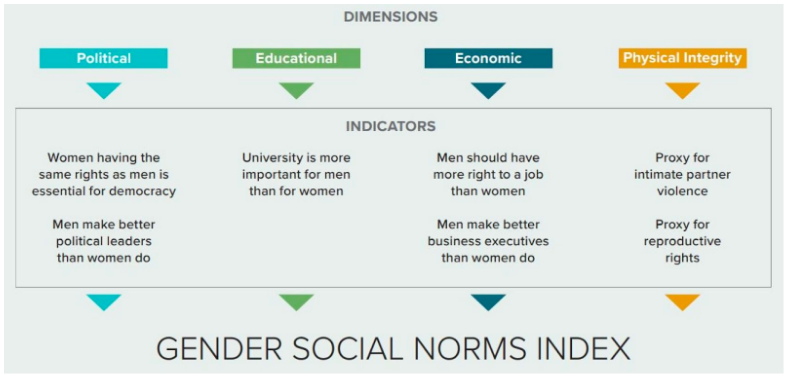UNDP's 2023 Gender Social Norms Index reveals persistent prejudice against women and stagnation in gender equality.
![]() 16 Jun 2023
16 Jun 2023
English
हिन्दी
Context:
UNDP’s 2023 Gender Social Norms Index reveals persistent prejudice against women and stagnation in gender equality.

Image Source:UNDP
Key Findings:
| Additional Information:
About Gender Social Norms Index (GSNI) 2023:
|
News Source: DTE
<div class="new-fform">
</div>